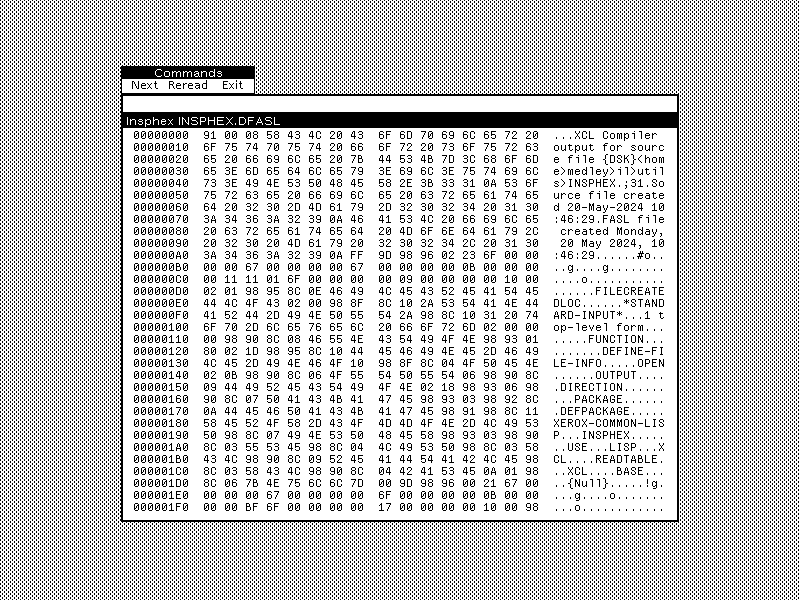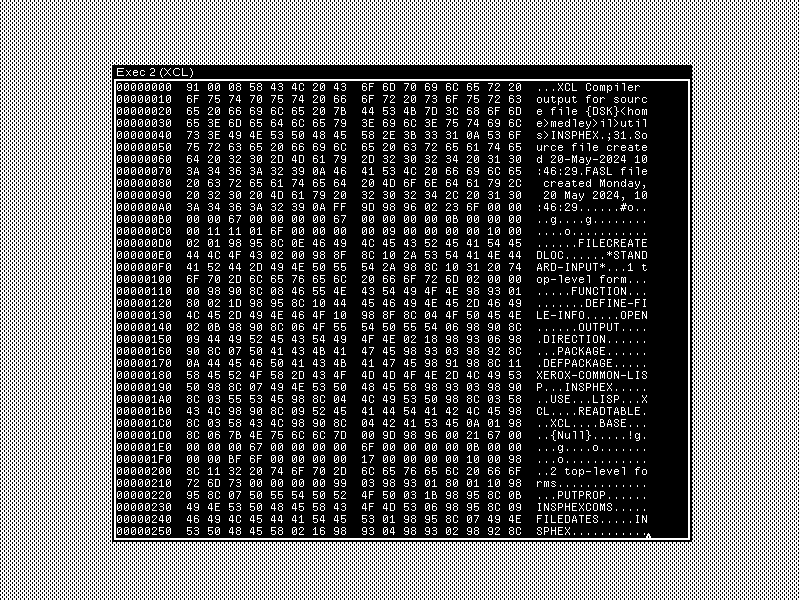Insphex is a hex dump tool that shows the contents of files as a list of hexadecimal values and the correspnding ASCII characters. The program is written in Common Lisp and Interlisp, runs on the Medley Interlisp environment, and is similar to the Linux tool hexdump.
The output can go to a window with a menu of commands, like this:
or to the standard output:
Download the file INSPHEX from the project repo, copy it to a file system location your Medley system has access to, and optionally compile the source by evaluating the following expression at a Common Lisp Exec such as the XCL Exec:
(compile-file "INSPHEX")
Next, to load the program evaluate:
(load "INSPHEX.DFASL")or:
(il:filesload insphex)Once Insphex is loaded you can call the following functions and commands.
To run the program evaluate:
(INSPHEX:HEXDUMP FILENAME &OPTIONAL NEWIN-P)where FILENAME is a file name. The function INSHPEX is exported from package INSPHEX nicknamed HX.
The output goes to *STANDARD-OUTPUT* unless the optional argument NEWIN-P is non NIL, in which case the program displays the hex dump in a separate window. The window has a menu with the following commands:
Next: displays the next page of outputReread: redisplays the input file from the beginningExit: quits the program.
The Executive command HEXDUMP works the same way as the function INSPHEX:HEXDUMP and accepts the same arguments:
HEXDUMP FILENAME [NEWIN-P]
Insphex adds to the File Browser the Hexdump command that shows in separate windows the hex dump of the selected files.
See the list of releases for notes on the changes in each version.
Insphex is developed by Paolo Amoroso.
This code is distributed under the MIT license, see the LICENSE file.

